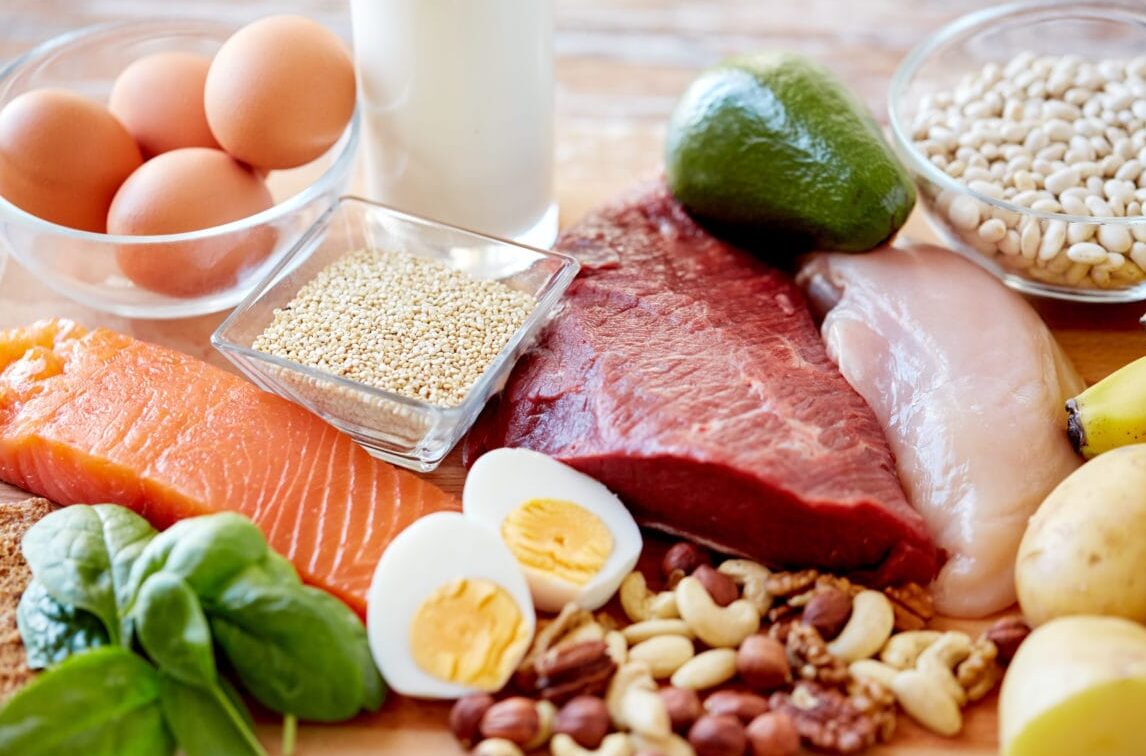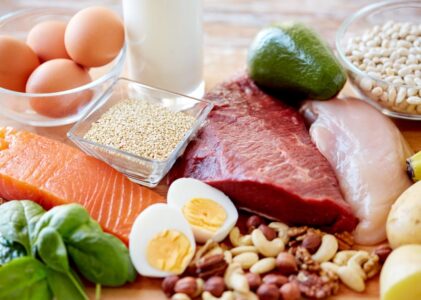Nutrient-dense foods are an essential component of a healthy diet. These foods are rich in nutrients relative to their calorie content, providing the body with the necessary vitamins, minerals, and other essential nutrients it needs to function optimally. Nutrient-dense foods are low in sugar, sodium, starches, and bad fats, and contain a lot of vitamins and minerals and few empty calories. Consuming nutrient-dense foods is crucial for maintaining good health, preventing chronic diseases, and supporting the immune system. Overall, understanding the importance of nutrient-dense foods is essential for nurturing the body with the necessary nutrients it needs to thrive.
Incorporating nutrient-dense foods into one’s diet has numerous benefits for energy and overall health. Nutrient-dense foods provide the body with sustained energy, helping individuals feel fuller for longer periods and reducing the likelihood of overeating. They also help to maintain a healthy weight, promote healthy digestion, and reduce the risk of chronic diseases such as heart disease, diabetes, and cancer. Examples of nutrient-dense foods include fruits and vegetables, whole grains, low-fat or fat-free milk products, seafood, lean meats, eggs, peas, beans, and nuts and seeds. By incorporating these foods into one’s diet, individuals can improve their overall health and well-being.
Some of the most nutrient-dense foods include salmon, kale, seaweed, garlic, shellfish, potatoes, liver, and sardines. These foods are rich in vitamins, minerals, and other essential nutrients that are important for optimal health. Additionally, consuming a variety of nutrient-dense proteins, such as lean meats and fish, can provide the body with extra protein for energy and help maintain muscle mass, especially in older adults. Overall, by incorporating nutrient-dense foods into one’s diet, individuals can provide their bodies with the necessary nutrients to maintain good health and energy levels.
Incorporating whole foods into your diet
Incorporating whole foods into your diet can have numerous benefits for your overall health and well-being. Whole foods are packed with essential vitamins, minerals, and antioxidants that support heart health and help manage inflammation in the body. These nutrient-dense foods have been shown to improve nutritional intake, increase energy levels, and reduce the risk of chronic diseases. Eating a wide variety of whole foods is important for optimal health, and experimenting with new fruits, vegetables, and grains can keep your palate interested in whole foods.
Examples of whole foods include fruits, vegetables, whole grains, lean proteins, and healthy fats. Whole grains like whole wheat, oats, and bulgur are excellent sources of fiber, iron, and B vitamins. Incorporating non-fat and low-fat dairy, fish and seafood, unprocessed lean meat, and skinless poultry into your diet can also provide essential nutrients. Additionally, cocoa and nuts are nutrient-dense foods that can be enjoyed in moderation. Eating an abundance of whole foods that support your health while reducing inflammation and illness is key to a healthy diet.
Tips for incorporating whole foods into your diet include prioritizing nutrient-dense foods like vegetables, fruits, nuts, seeds, beans, and fish. Eating more fiber-rich foods like whole grains, fruits, and vegetables can help keep you full and improve digestive health. Choosing a variety of nutrient-dense foods across and within all food groups can ensure that you are getting a wide range of essential nutrients. By making small changes to your diet and incorporating more whole foods, you can nurture your body with the nutrients it needs to thrive.
Avoiding processed foods and empty calories
Processed foods and empty calories are terms used to describe foods that are high in calories but low in nutritional value. Processed foods are those that have been altered from their natural state, often through the addition of preservatives, artificial flavors, and other additives. Empty calories, on the other hand, refer to foods that provide calories but little to no nutritional value, such as sugary drinks and snacks. Consuming these types of foods can have negative impacts on both physical and mental health, including an increased risk of obesity, diabetes, and heart disease. Therefore, it is important to limit the consumption of processed foods and empty calories in one’s diet.
To reduce the consumption of processed foods and empty calories in your diet, it is important to focus on nutrient-dense foods. Nutrient-dense foods are those that provide a high amount of nutrients relative to their calorie content. These include fruits, vegetables, whole grains, lean proteins, and healthy fats. Consuming these types of foods can lead to weight loss and better management of chronic diseases such as diabetes. Additionally, eating slowly and mindfully can help reduce the amount of food consumed and decrease the risk of overeating.
To make healthy food choices, it is important to read food labels and understand the ingredients in the foods you consume. Choosing whole foods over processed foods and limiting the consumption of sugary drinks and snacks can also help reduce the intake of empty calories. Incorporating a variety of nutrient-dense foods into your diet can help provide the necessary vitamins, minerals, and other nutrients needed for optimal health. By making small changes to your diet and focusing on nutrient-dense foods, you can improve your overall health and energy levels.
Balancing macronutrients for optimal energy
Balancing macronutrients is essential for maintaining optimal energy levels throughout the day. Macronutrients, which include carbohydrates, proteins, and fats, provide the body with the energy it needs to function properly. Carbohydrates are the body’s primary source of energy, while protein helps rebuild and repair tissues, and fat provides long-lasting energy. While all macronutrients are important, it is crucial to consume them in the right proportions to maintain energy levels and avoid crashes. A balanced diet should consist of 45-65% carbohydrates, 10-35% protein, and 20-35% fat. By balancing macronutrients, individuals can ensure that their bodies have the necessary fuel to sustain energy levels throughout the day.

Examples of balanced meals include a quinoa bowl with roasted vegetables, avocado, and grilled chicken, or a spinach salad with grilled salmon, avocado, and a variety of colorful vegetables. To balance macronutrients in your diet, it is important to choose nutrient-dense foods that provide a variety of vitamins and minerals. Nutrient-dense foods include fruits, vegetables, whole grains, lean meats, and low-fat dairy products. Incorporating these foods into meals and snacks can help individuals maintain energy levels and avoid crashes throughout the day.
Tips for balancing macronutrients in your diet include incorporating lean proteins such as chicken, fish, and legumes into meals, choosing healthy fats such as nuts, seeds, and avocado, and incorporating a variety of colorful fruits and vegetables into meals and snacks. It is also important to avoid processed foods and choose whole, nutrient-dense foods instead. By following these tips and incorporating balanced meals into your diet, individuals can maintain optimal energy levels throughout the day and promote overall health and well-being.

